Swiss start-up incubator bets on migrants and refugees
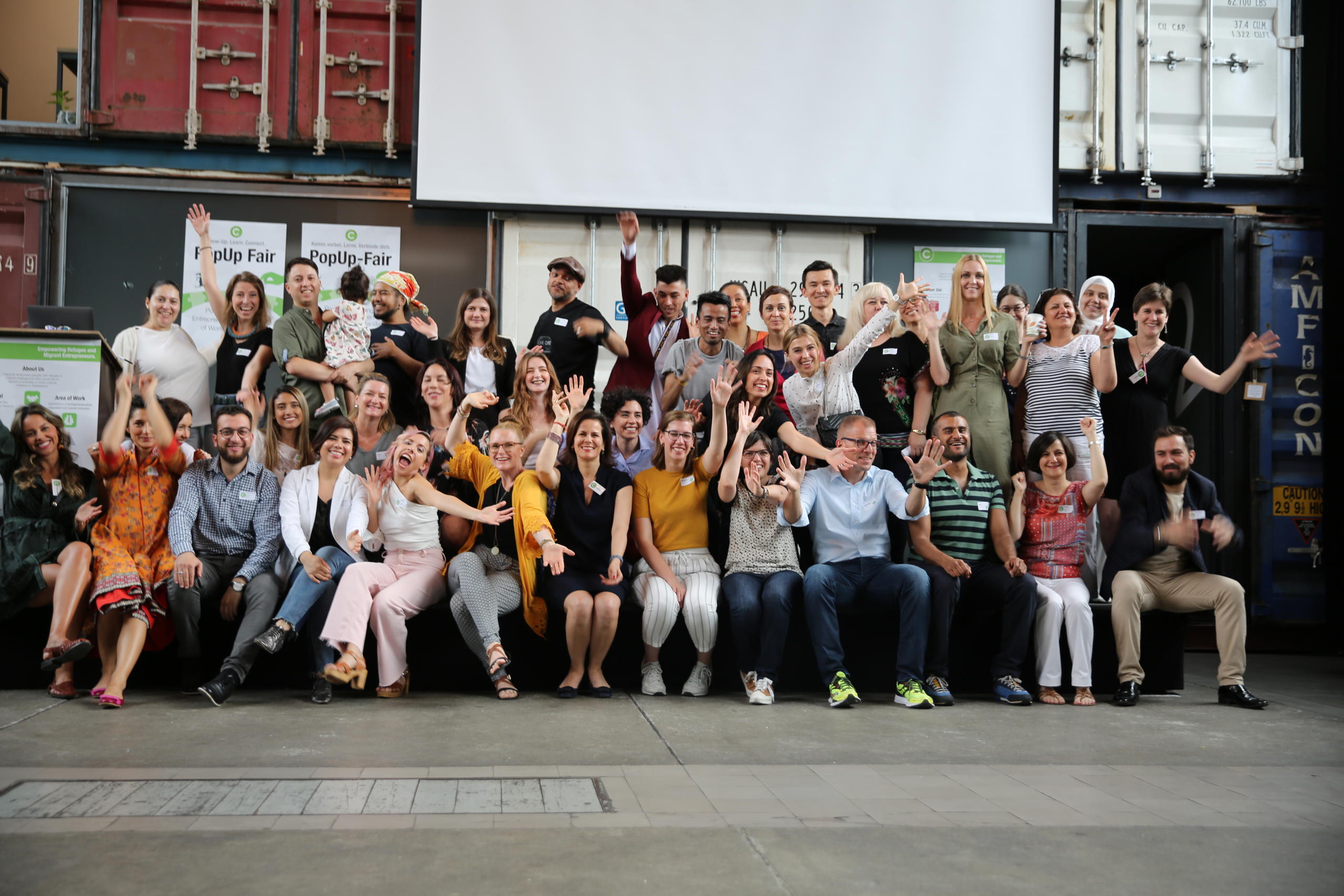
Refugees and migrants can be people in dire need – a potential burden to host states and communities. That widespread perception undermines their integration in Switzerland and around the world.
One association in Zurich wants to shatter this stereotype and shine the spotlight on this often-overlooked talent pool.
“People are gradually opening up to understanding who refugees and migrants are,” says Ana Maria Angarita, co-founder of Capacity. “They are even becoming curious about it: what is it that they can offer? There are a few companies that give apprenticeships to refugees. When it comes to the start-up world, there is still a long way to go… There is still a stigma from some segments of the society.”
Angarita is no stranger to upheaval and fresh starts. She fled her native Colombia in 2001 and moved to the United States as a refugee when she was a minor. Work also meant international travel – including a stint with UNICEF in India. She studied at the Graduate Institute of International and Development Studies in Geneva.
Surprisingly it was a move within Switzerland that planted the seed for creating a start-up incubator for refugees and migrants. Moving from Geneva to Zurich with her husband after eight years living in Switzerland should have been easy. It wasn’t.
The challenge of starting over
“We had to start over,” she recalls. “It was hard, especially for me to find a job. I experienced firsthand the struggle that many migrants and refugees face here in Switzerland to integrate, to build your own network, to gain the trust from people, that you are a reliable person, a reliable professional.”
Migrants who move to Switzerland for family reasons may spend years searching for a job even If they are highly educated, she notes. Asylum-seekers and recognized refugees face a different set of challenges and are more likely to face unemployment and depend on welfare than the native Swiss population or the broader migrant population which is predominantly made up of EU citizens who have the right to work in Switzerland
The insights gained through her own experiences helped propel Capacity’s launch in 2015. So did the professional insights of three other co-founders External linkincluding Alexa Kuenburg, a Zurich-based doctor with experience in refugee healthcare. Kuenburg had come to the conclusion that it would be easier for refugees suffering from post-traumatic stress disorder to recover if they had a job, a sense of purpose, something to help them shape a new identity in their new setting.
Solutions before our eyes
Syrian Mohamad Aldahouk fled war in his country and is now in Switzerland with an F-permit. Formally, that means he is a provisionally admitted foreign national who has been ordered to return to their nation – an order that cannot be enforced because it is deemed to constitute a violation of international law or an unreasonable endangerment of the person or technically impossible.
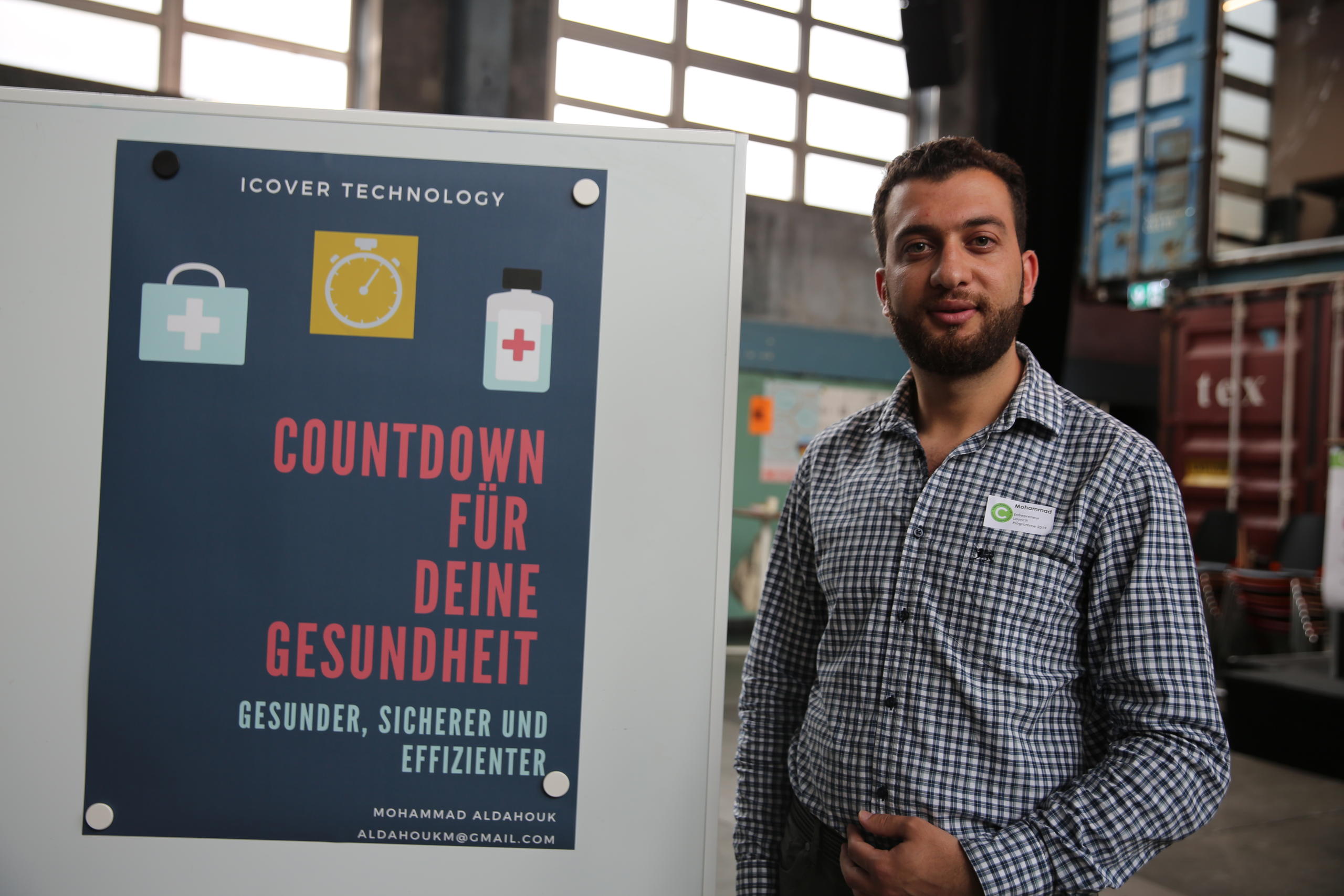
It’s a precarious status. This, however, does not deter Aldahouk who has a solid grasp of German and landed a training placement with an optician. The routine task of marking the expiration date of contact lens products opened his eyes to the mismatch between the declared expiration date and the actual expiration date of many pharmaceutical products.
“This is a health risk for the consumer and a missed business opportunity for the pharmaceutical company because products are kept and used after their expiration date,” Aldahouk explains with a serious expression.
He shares that Eureka moment while nervously waiting to get up on stage and deliver a five-minute elevator pitch for his innovative solution: iCover. This intelligent locking system consists of a lid that tracks the expiration time of a product and alerts the consumer light or sound when the moment comes.
The obvious area of application is Switzerland’s lucrative pharmaceutical industry. “I have made a plan from A to Z for this project,” says Aldahouk. “I am currently working on the prototype and after that I will be able to present it investors and get a patent.
This aspiring Syrian entrepreneur is among 16 participants who took part in the 2019 Launch programme which ended in June with a Pop-Up Fair as a graduation celebration. The programme pairs up refugees and migrants with qualified mentors who can help them polish their start-up ideas. A UBS bank volunteer helped Aldahouk “stay focused.”
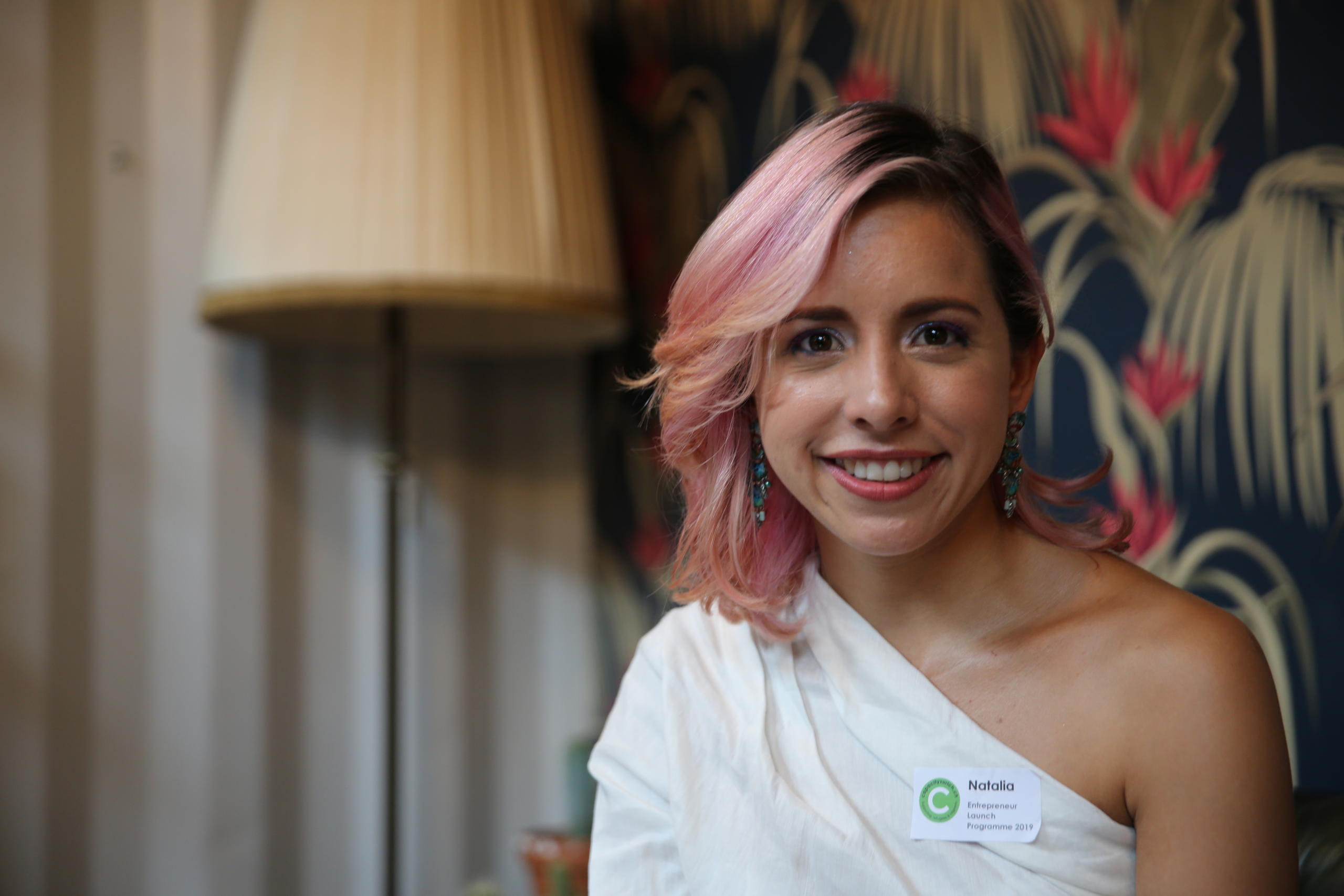
Colombian Natalia Sierra is another asylum-seeker. She is frank about the struggles her family have faced in Switzerland, partly because of the isolating and cramped conditions of their accommodation when they first arrived. She says they were forced to flee Colombia after receiving multiple threats because of her mother’s legal work defending internally displaced communities and her documentary work on these issues.
Overcoming tough times
“These have been very tough times, especially emotionally,” she tells swissinfo.ch. “It was a shock to arrive here in our conditions. There is uncertainty and memories. Regrets and nostalgia. The treatment in refugee shelters is harsh. They treat you like you are a criminal. They make you feel unwelcome – the sooner that you go home, the better.”
Sierra is an asylum-seeker which presents a challenge in terms of getting her start-up – Power to the People – off the ground. She would like refugees to take the lead in city tours, sharing with visitors their favourite spots in the city in line with their interests and passions, like graffiti for example. This would allow even natives to see their city in a new light and create a space for dialogue with refugees.
“When I started with Capacity, I had the seed of a very blurry idea,” she says. “Now I have a clear design for what I want to do. And I have a supportive community.”
With energy and drive in spades, she has left no stone unturned in the search for opportunities. She has embarked on a Masters of Advanced Studies in Art & Society at the Zurich University of The Arts. Sierra was commissioned by UN Refugee Agency (UNHCR) to design a poster honouring refugee women for the exhibition Art Stands with Refugees that took place in the 2019 edition of Art Basel. And she is part of Architecture for Refugees Schweiz.
“What people fail to see when a refugee arrives here is that they have potential,” says Sierra.
Foreigners in Switzerland
One in five inhabitants in Switzerland are foreign-born —the highest rate in Europe after Luxembourg.
Almost 2.1 million foreigners – more than two-thirds of them from the EU and EFTA countries – lived in Switzerland at the end of 2018, according to the Swiss Federal Statistical Office.
The asylum seeking (N), temporarily protected (F) or recognised refugee (F/B) populations are comprised of approximately 123,397 people – 1.45% of the population, according to Capacity.
This community has a dependency on state support of 70-80% and an employment rate of 6.3% during the asylum process (N-permit holders), rising to 30-40% employment after recognition as an asylum seeker, notes the Zurich-based organisation. This is in contrast to the broader migrant population (including EU citizens) dependency on state support of 6-7%, or the native Swiss population of 2%.

In compliance with the JTI standards
More: SWI swissinfo.ch certified by the Journalism Trust Initiative









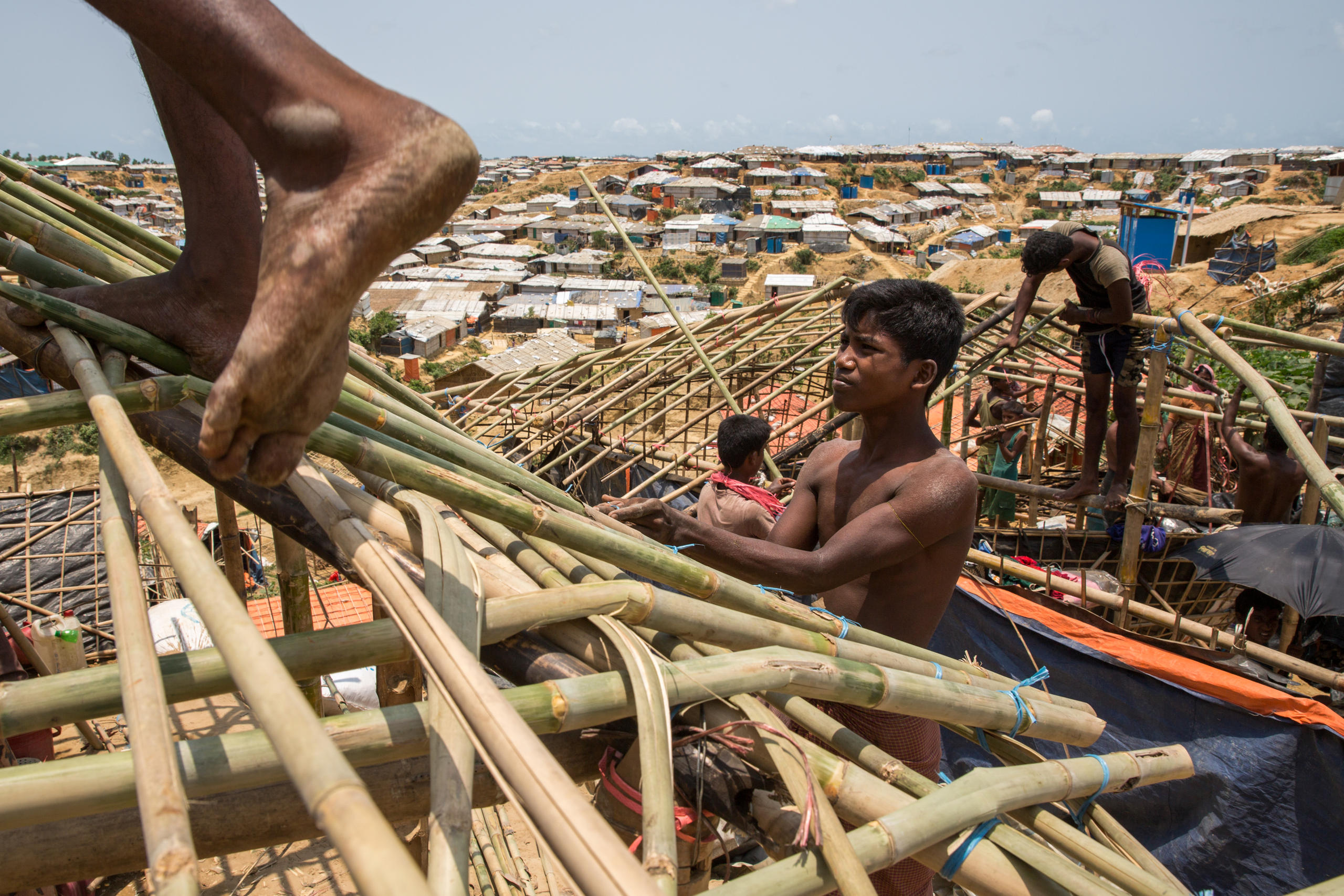

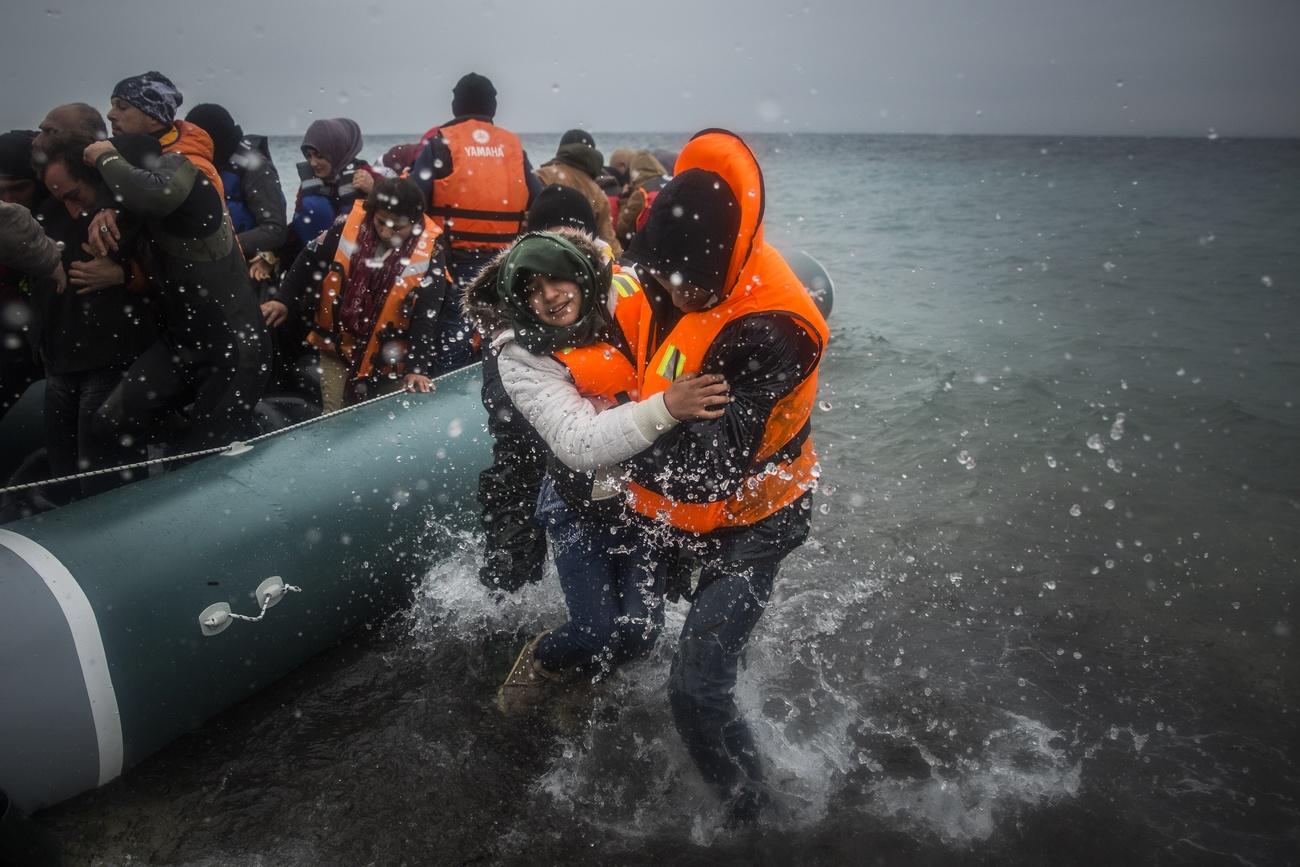
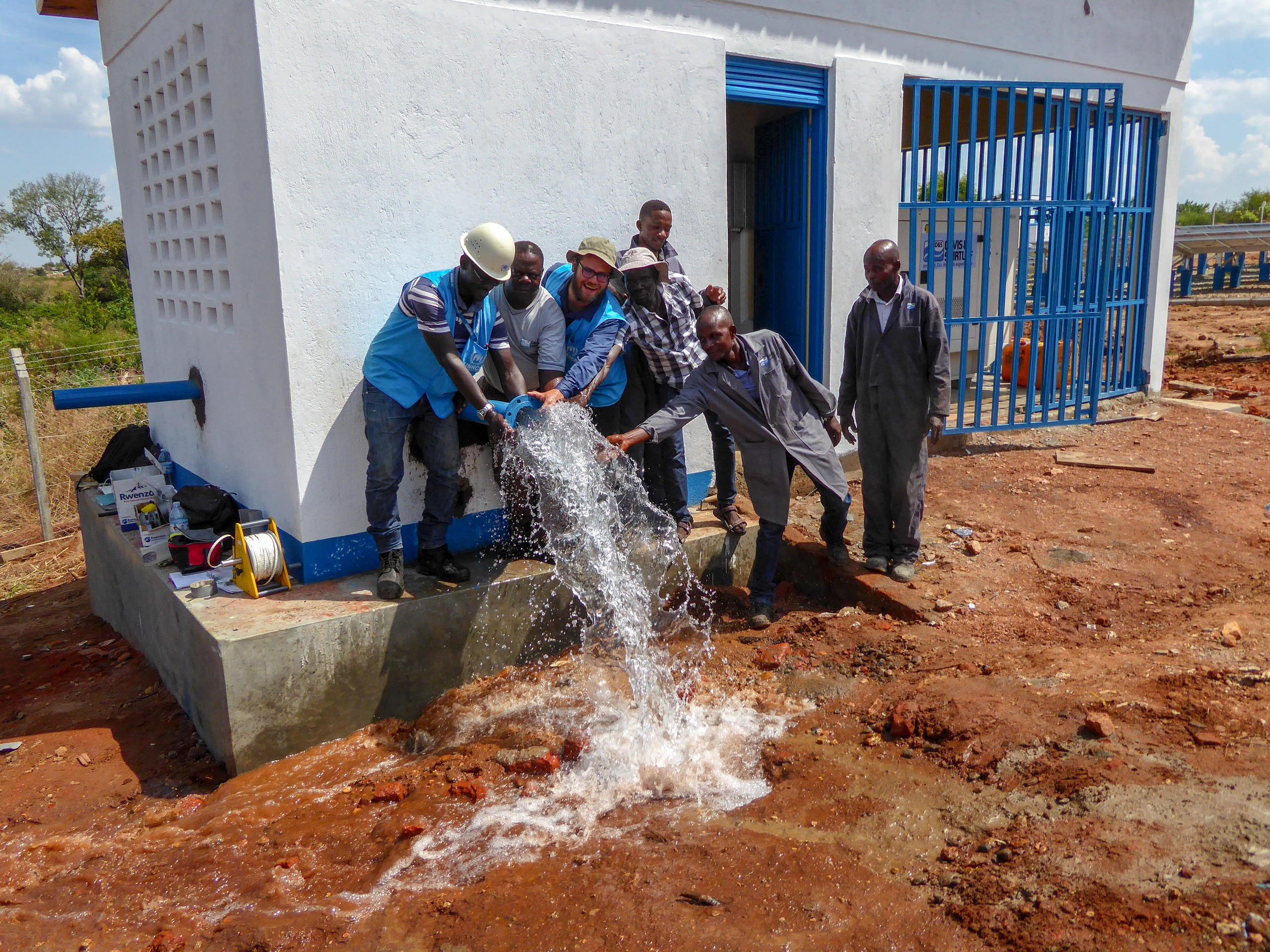

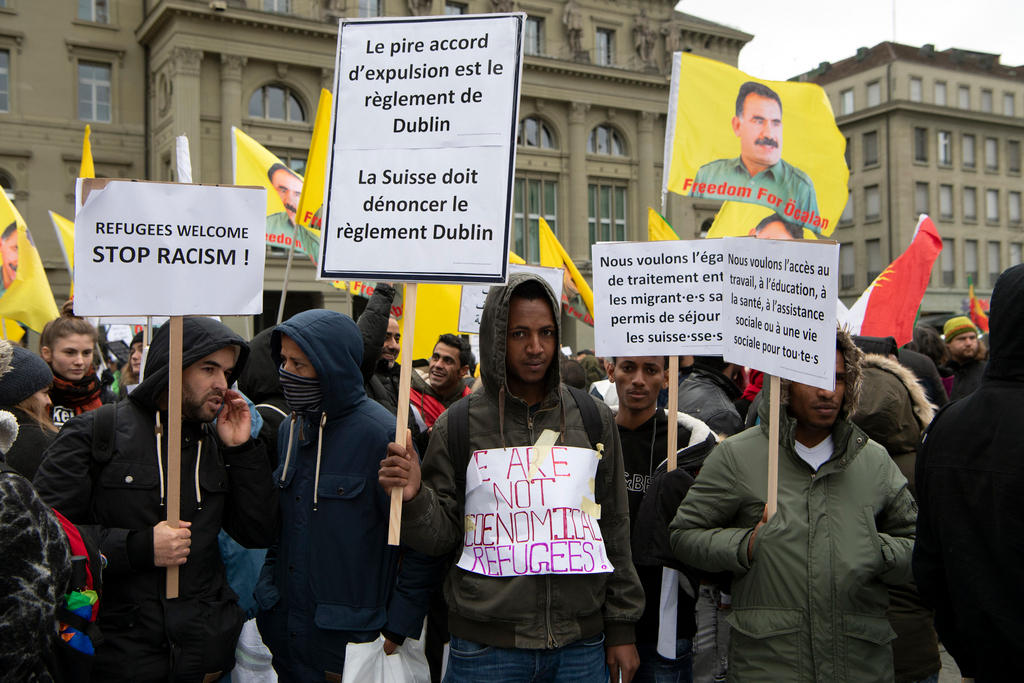

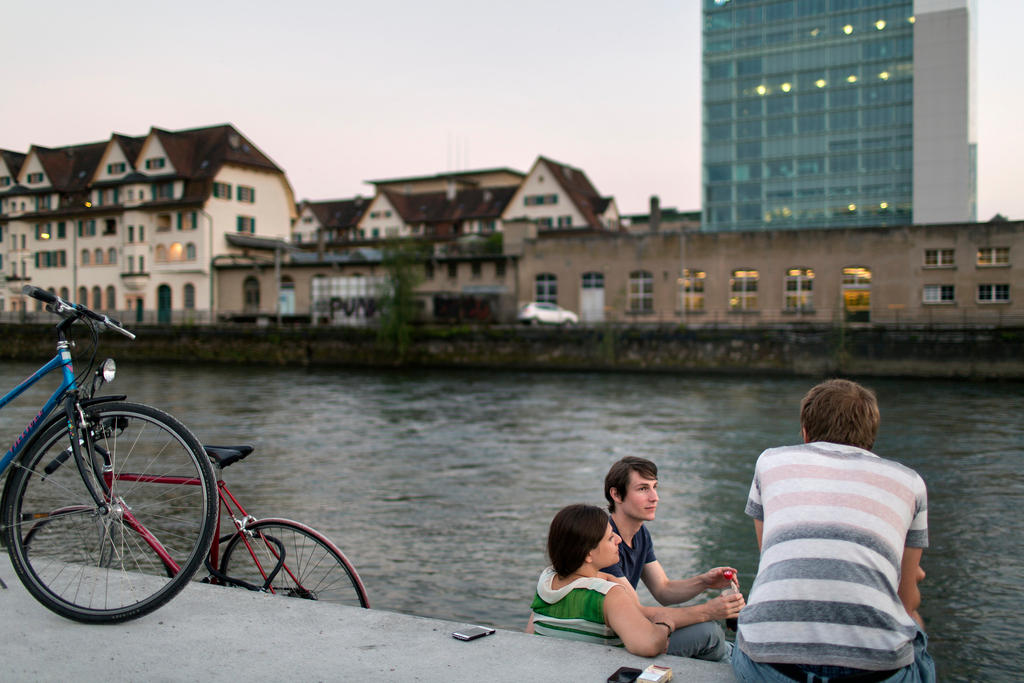
You can find an overview of ongoing debates with our journalists here . Please join us!
If you want to start a conversation about a topic raised in this article or want to report factual errors, email us at english@swissinfo.ch.